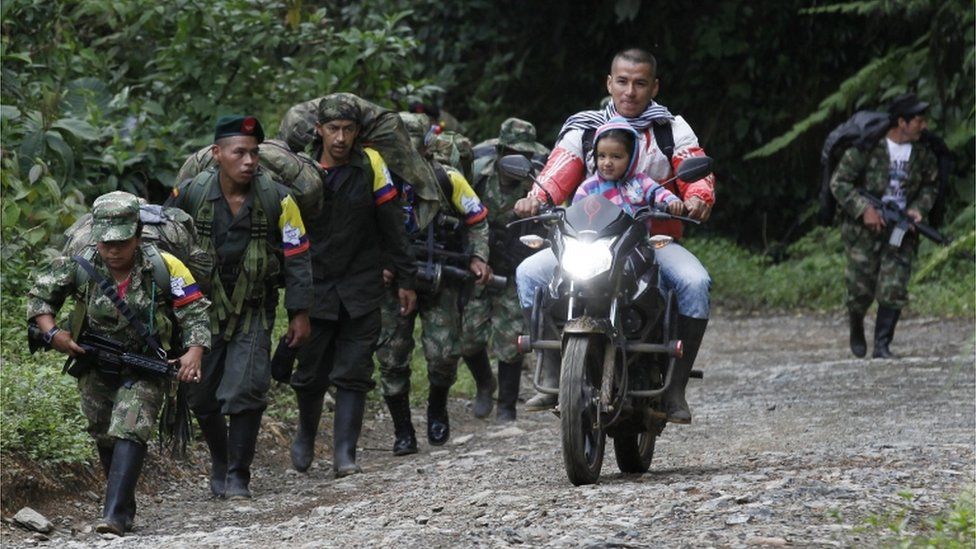Colombia
FARC soldiers march down a roadway near San Vincente de Caguan, Colombia. [Reuters]
In 2016, five decades of fighting between the Colombian government and the Revolutionary Armed Forces of Colombia (FARC) was brought to an end through a peace deal. The FARC was founded in 1964 as a Marxist militant group aiming to redistribute the country’s wealth to the poor and nationalize its resources among other communist reforms. The FARC commonly targeted civilians and used hijackings, kidnappings, assassinations, and bombings in their fight against the Colombian government, and attained much of its funding through the production and exportation of cocaine. It is estimated that the FARC and other guerilla groups such as the National Liberation Army (ELN) kidnapped over twenty-five thousand people between 1970 and 2010. Rebel groups were not alone in the targeting of civilians, however. Known as the “false positives” scandal, the Colombian military is estimated to have killed thousands of civilians and passed them off as FARC rebels to inflate kill data. Finally, after half a century of conflict, 220,000 dead, and 5.7 million displaced, the conflict drew to an official end in 2016 after the leaders of the FARC and President Juan Santos came to an agreement. The deal allowed for the future political participation of FARC members, allocated funding for poor rural areas, and called for the disarmament of rebels and destruction of illegal crops.

A man drives a motorcycle past FARC soldiers leaving their jungle outpost on the “final march” after the signing of the 2016 peace deal. [BBC]
Although the civil war officially ended after the peace deal, violence remains pervasive in Colombia. Guerrilla groups continue to clash in many regions, oftentimes locking down villages, threatening to kill and civilians that attempt to leave. Constant violence has exacerbated the displacement crisis that began during the civil war. Presently, 6.9 million people remain displaced, 6.8 of which are internally displaced, making Colombia the second highest internal displacement crisis in the world. 87% of the displacements are attributable to violence. Furthermore, Colombia is the third largest refugee host in the world. Up to 2.5 million Venezuelans have taken shelter in Colombia, adding pressure to an already dire situation.
Sources: Council on Foreign Relations, UN Refugee Agency, BBC, Britannica